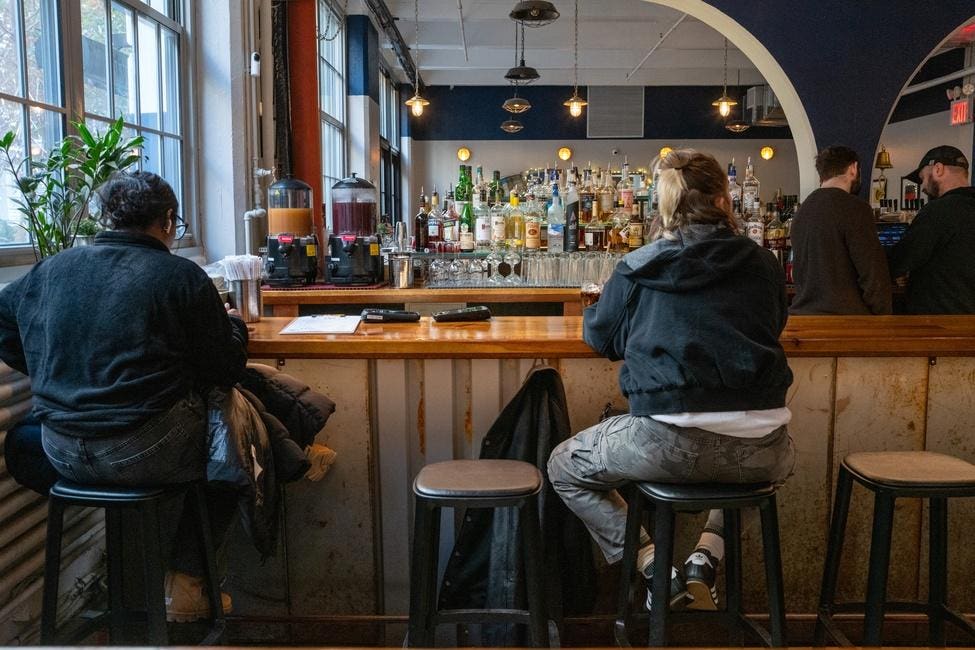The Surgeon General warns about alcohol’s link to cancer, adding to a larger conversation about … [+]
Getty ImagesAlcohol has long been central to American life—raised in toasts, poured at celebrations, and served as a social glue. But U.S. Surgeon General Dr. Vivek Murthy is urging Americans to rethink its role.
“Alcohol is a well-established, preventable cause of cancer responsible for about 100,000 cases of cancer and 20,000 cancer deaths annually in the United States,” Dr. Murthy stated in his recent advisory. He emphasized that, despite this significant impact, “less than half of Americans recognize it as a risk factor for cancer.”
The advisory highlights that alcohol consumption increases the risk for at least seven types of cancer, including those of the breast, colorectum, esophagus, liver, mouth, throat, and voice box. Dr. Murthy has called for updating health warning labels on alcoholic beverages to better educate the public.
This isn’t just a public health message—it builds on what’s already been a cultural reckoning. And it’s landing at a time when Americans are already rethinking their relationship with booze. From shifting generational habits to the rise of alcohol-free alternatives, this moment could signal a major reset. So, where do we go from here?
A Pandemic Hangover and Generational Reset
From lockdown drinking to a new era of wellness, Americans—especially Gen Z and Millennials—are … [+]
Getty ImagesThe pandemic threw a wrench into just about every routine we had—including drinking. Stuck at home, many turned to alcohol for comfort or distraction. Heavy drinking among American adults spiked by over 20% during the height of COVID, and for some, those habits lingered even after lockdowns were lifted.
But now, a different story is taking shape. Gen Z and Millennials are leading the charge toward lighter drinking—or ditching it entirely. In 2024, 61% of Gen Z said they planned to drink less, up from 40% the year before. Millennials weren’t far behind, cutting their average weekly alcohol intake by 40%. Their reasons are hard to argue with: better health, saving money, improving mental clarity, and losing a few pounds.
Alcohol isn’t just losing its sparkle—it’s being outpaced by cultural shifts that prioritize wellness and mindfulness over bottomless mimosas.
Hello, Sober Curious Nation
The rise of the sober curious movement proves that drinking isn’t the default anymore. Non-alcoholic … [+]
gettyEnter the sober curious movement, where people are asking themselves: What if I didn’t drink tonight? No judgment. No rules. Just a chance to rethink the default drink-in-hand approach to socializing.
This mindset is catching on fast. In 2024, 41% of Americans said they were planning to drink less, and 26% described themselves as “mindful drinkers”. What’s driving this? It’s not just Surgeon General warnings. It’s also the rise of booze-free options that feel, dare we say, fun. Craft mocktails, alcohol-free wines, and zero-proof spirits are giving people new ways to join the party without the hangover.
Bars and restaurants are catching on too, offering menus that don’t leave non-drinkers stuck with a soda. It’s a cultural shift that says: you don’t need to drink alcohol to belong.
What’s Filling the Gap?
With THC drinks and alcohol-free cocktails gaining popularity, America’s social rituals are shifting … [+]
gettyIf alcohol is no longer the automatic go-to, what’s taking its place? The answer is a mix of innovation and wellness.
On one side, there’s the booming market for non-alcoholic drinks. These aren’t your average Shirley Temples—they’re complex, well-crafted, and designed for grown-up palates. On the other side, there’s THC. With cannabis products legal in more states than ever, THC beverages are staking their claim as the “new cocktail.” They’re marketed as laid-back, health-conscious, and free from alcohol’s stigma.
Even social rituals are evolving. A night out doesn’t have to mean bar hopping—it could mean a yoga class, a sober pop-up event, or catching up over herbal tea. As the options grow, so does the freedom to choose how we connect.
A Perfect Storm of Change
Rising costs, public health warnings, and cultural trends are combining to challenge alcohol’s place … [+]
Getty ImagesOf course, there’s also the money factor. High inflation and rising living costs mean fewer people have the cash to splurge on overpriced drinks. It’s not the first time economics have changed drinking habits—during the Great Recession, beer held steady while pricier options like wine and cocktails took a hit. Now, the same financial squeeze is nudging people to reconsider alcohol altogether.
Then there’s public health. The Surgeon General’s warning is clear: alcohol causes cancer, and its risks are bigger than many of us thought. Some experts even wonder if we’re at the start of a shift as big as the anti-smoking campaigns of the past. Could alcohol go the way of cigarettes, from cultural mainstay to health hazard? It’s a question worth asking.
So, What’s Next?
Dr. Vivek Murthy highlights the cancer risks of alcohol, calling for warning labels. His message … [+]
Getty ImagesThis moment feels less like an answer and more like an open door. Americans are rethinking what they drink, why they drink, and even if they drink. Whether that means grabbing a THC tonic, sipping a sparkling water, or skipping the whole thing, one thing is clear: we’re in the middle of a cultural shift.
The Surgeon General’s warning is just one part of a bigger conversation. It’s about health, choice, and how we connect with each other. The drink in hand may change, but the toast—the shared moment, the ritual—that’s what will endure.
MORE FROM FORBES
Want more insights into food, drink, and the culture they create? Follow me here on Forbes for thoughtful takes on trends, industry shifts, and the stories behind what we eat and drink.
Read the full article here


